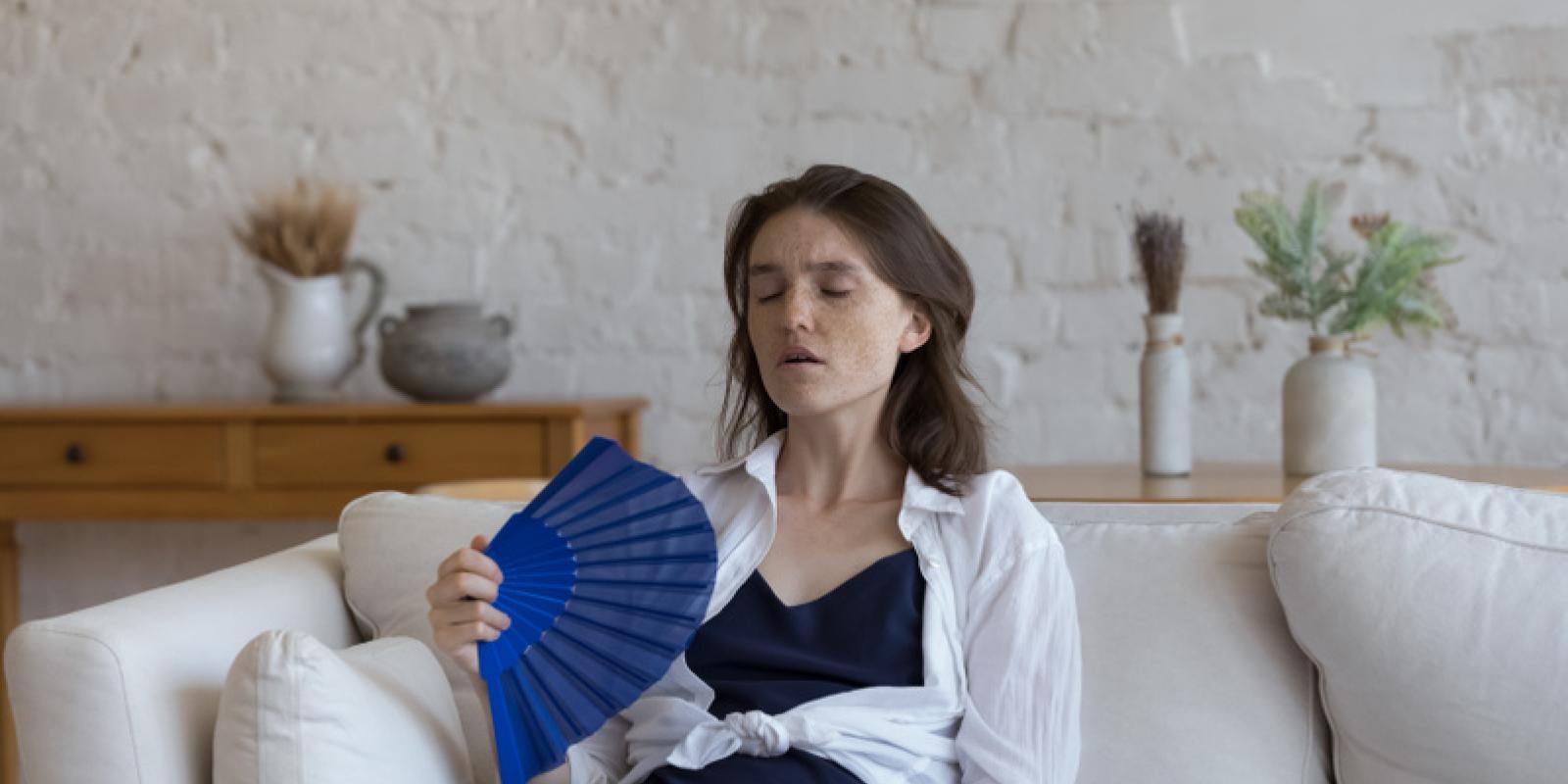This is an in-depth assessment of the current evidence for acupuncture for hot flushes. Follow the links for other information regarding acupuncture for cancer:
Description of included studies
Hot flush severity and frequency
A Cochrane review included trials published up to 2013 of acupuncture in women with hot flushes related to the natural menopause or menopause due to surgical removal of ovaries, radiation, or chemotherapy (Dodin 2013). Sixteen trials were included of which 5 were in women with a history of cancer.
Overall, there was no significant difference between the acupuncture and sham acupuncture for hot flush frequency (MD -1.13 flushes per day, 95% CI -2.55 to 0.29, 8 RCTs, low-quality evidence) but flushes were significantly less severe in the acupuncture group (Dodin 2013). However, the effect was small, the results of individual trials were extremely variable and the evidence was judged to be of very low quality (SMD -0.45, 95% CI -0.84 to -0.05, 6 RCTs). When compared to no treatment, acupuncture appeared to be more beneficial but it was less effective than hormone therapy and the evidence was low or very low quality.
At least 11 systematic reviews have been published since the Cochrane review (Frisk 2014; Garcia 2015; Chen 2016; Chiu 2016; Chien 2017; Pan 2018; Wang 2018; Qan'ir 2019; Chien 2020; Liu 2020; Yuanqing 2020). These have included a varied number of studies, ranging from 7 to 13 randomised controlled trials of acupuncture for hot flushes in cancer patients (see Table 1).
The variation in number of studies is due to the different databases searched and to the definition of acupuncture used. In some cases, only acupuncture treatments that involve needling are included while, in others, related therapies such as acupressure and electroacupuncture are also assessed. Similarly, the control interventions may be limited to sham versions of acupuncture or encompass a wide range of active and inactive treatments. Several of the reviews included studies other than RCTs further complicating interpretation. While individual trials have reported beneficial effects on hot flushes, conclusions of systematic reviews and the results of meta-analyses have been conflicting.
Prostate cancer
Most trials are in breast cancer patients but two systematic reviews assessed the evidence on managing hot flushes in men with prostate cancer (Frisk 2016; Qan'ir 2019). Uncontrolled studies and quasi-experimental studies were included alongside RCTs respectively. Only one small trial (n=31) in men with prostate cancer was included in the first review and the evidence was reported as insufficient in the more recent review.
No RCTs have been published since the most recent systematic review.
Overall, the evidence on acupuncture for hot flushes in cancer patients, while promising, is limited due to the risk of bias in most trials and heterogeneity in the results.
References
Systematic reviews
Dodin, S., C. Blanchet, I. Marc, E. Ernst, T. Wu, C. Vaillancourt, J. Paquette and E. Maunsell. Acupuncture for menopausal hot flushes. Cochrane Database Syst Rev 2013 7: CD007410.
Frisk, J. W., M. L. Hammar, M. Ingvar and A. C. Spetz Holm. How long do the effects of acupuncture on hot flashes persist in cancer patients? Support Care Cancer 2014 22(5): 1409-1415.
Garcia MK, Graham-Getty L, Haddad R, Li Y, McQuade J, Lee RT, et al. Systematic review of acupuncture to control hot flashes in cancer patients. Cancer. 2015;121(22):3948-58.
Chen YP, Liu T, Peng YY, Wang YP, Chen H, Fan YF, et al. Acupuncture for hot flashes in women with breast cancer: A systematic review. Journal Cancer Res Ther. 2016;12(2):535-42
Chien TJ, Hsu CH, Liu CY, Fang CJ. Effect of acupuncture on hot flush and menopause symptoms in breast cancer- A systematic review and meta-analysis. PloS one. 2017;12(8):e0180918
Chien TJ, Liu CY, Fang CJ, Kuo CY. The maintenance effect of acupuncture on breast cancer-related menopause symptoms: a systematic review. Climacteric : the journal of the International Menopause Society. 2020;23(2):130-9.
Chiu HY, Shyu YK, Chang PC, Tsai PS. Effects of Acupuncture on Menopause-Related Symptoms in Breast Cancer Survivors: A Meta-analysis of Randomized Controlled Trials. Cancer Nurs. 2016;39(3):228-37.
Liu J, Nie G, Li Y, Wen Z, Lu L, Xie L, et al. Nonhormonal Hot Flash Management for Breast Cancer Survivors: A Systematic Review and Network Meta-Analysis. Evidence-based complementary and alternative medicine : eCAM. 2020;2020:4243175.
Qan'ir Y, DeDeaux D, Godley PA, Mayer DK, Song L. Management of Androgen Deprivation Therapy-Associated Hot Flashes in Men With Prostate Cancer. Oncology nursing forum. 2019;46(4):E107-e18.
Wang XP, Zhang DJ, Wei XD, Wang JP, Zhang DZ. Acupuncture for the relief of hot flashes in breast cancer patients: A systematic review and meta-analysis of randomized controlled trials and observational studies. Journal of cancer research and therapeutics. 2018;14(Supplement):S600-s8.
Yuanqing P, Yong T, Haiqian L, Gen C, Shen X, Dong J, et al. Acupuncture for Hormone Therapy-Related Side Effects in Breast Cancer Patients: A GRADE-Assessed Systematic Review and Updated Meta-Analysis. Integrative cancer therapies. 2020;19:1534735420940394.
Pan Y, Yang K, Shi X, Liang H, Shen X, Wang R, et al. Clinical Benefits of Acupuncture for the Reduction of Hormone Therapy-Related Side Effects in Breast Cancer Patients: A Systematic Review. Integrative cancer therapies. 2018;17(3):602-18.
Photo: Mostphotos.com
